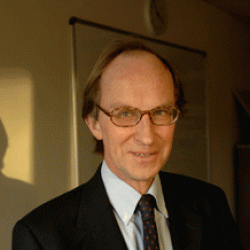
Prof. Nick Woodhouse
Professor of Mathematics
Emeritus Fellow of Wadham College
University of Oxford
Andrew Wiles Building
Radcliffe Observatory Quarter
Woodstock Road
Oxford
OX2 6GG
Twistors and the isomonodromy deformation problem. Isomonodromic deformations of systems of ordinary differential equations play a central part in our understanding of the complex geometry of integrable systems, and also reveal connections, through the theory of Frobenius manifolds, between twistor theory and quantum field theory.
Twistor theory was developed by Roger Penrose. His original aim was to find a route to the quantization of gravity. The underlying mathematical ideas have proved to have rich applications in geometry and in the analysis of integrable systems.
Geometric quantization is a general framework for constructing quantum systems from their classical counterparts, starting from the symplectic geometry of the classical phase space. The theory is described in Geometric quantization (second edition, Oxford University Press, 1992).
General relativity

